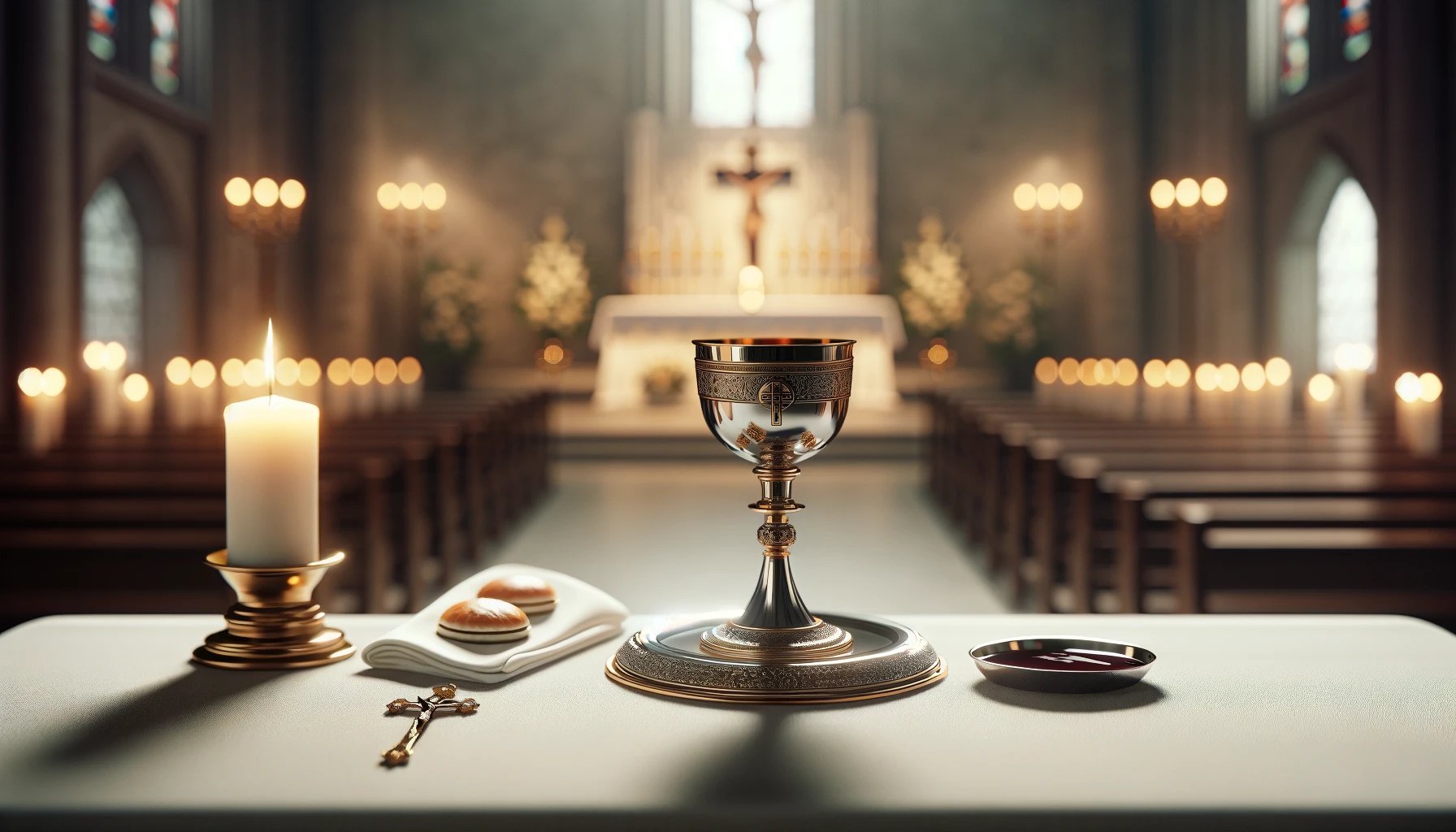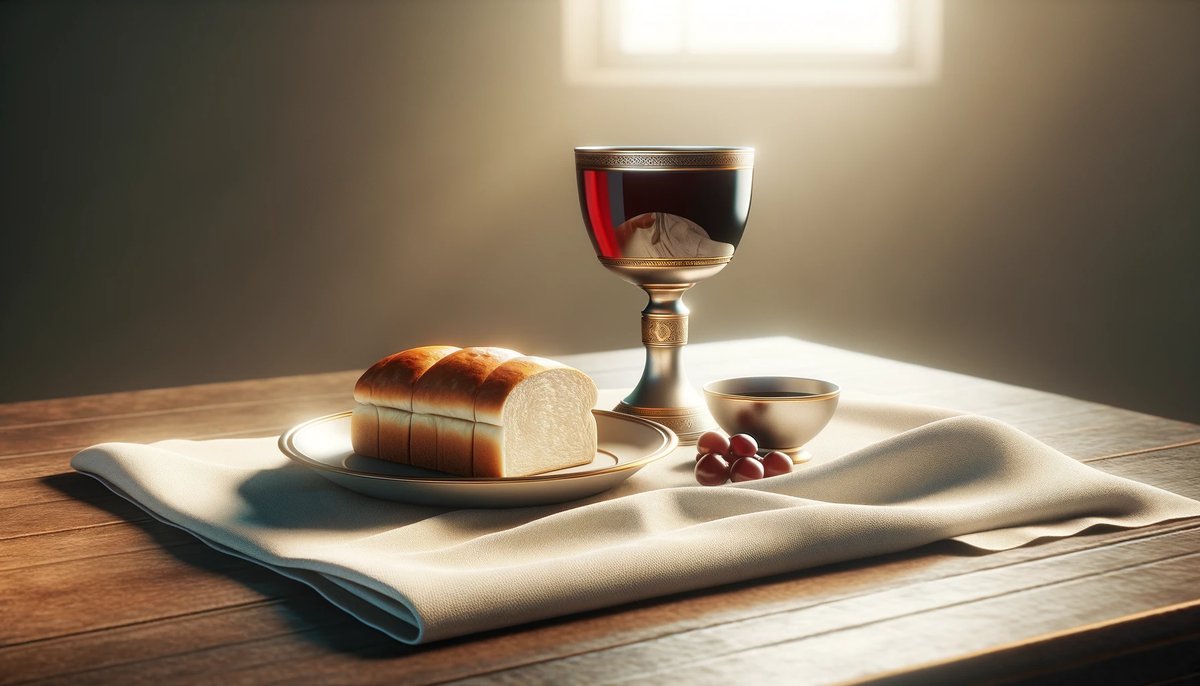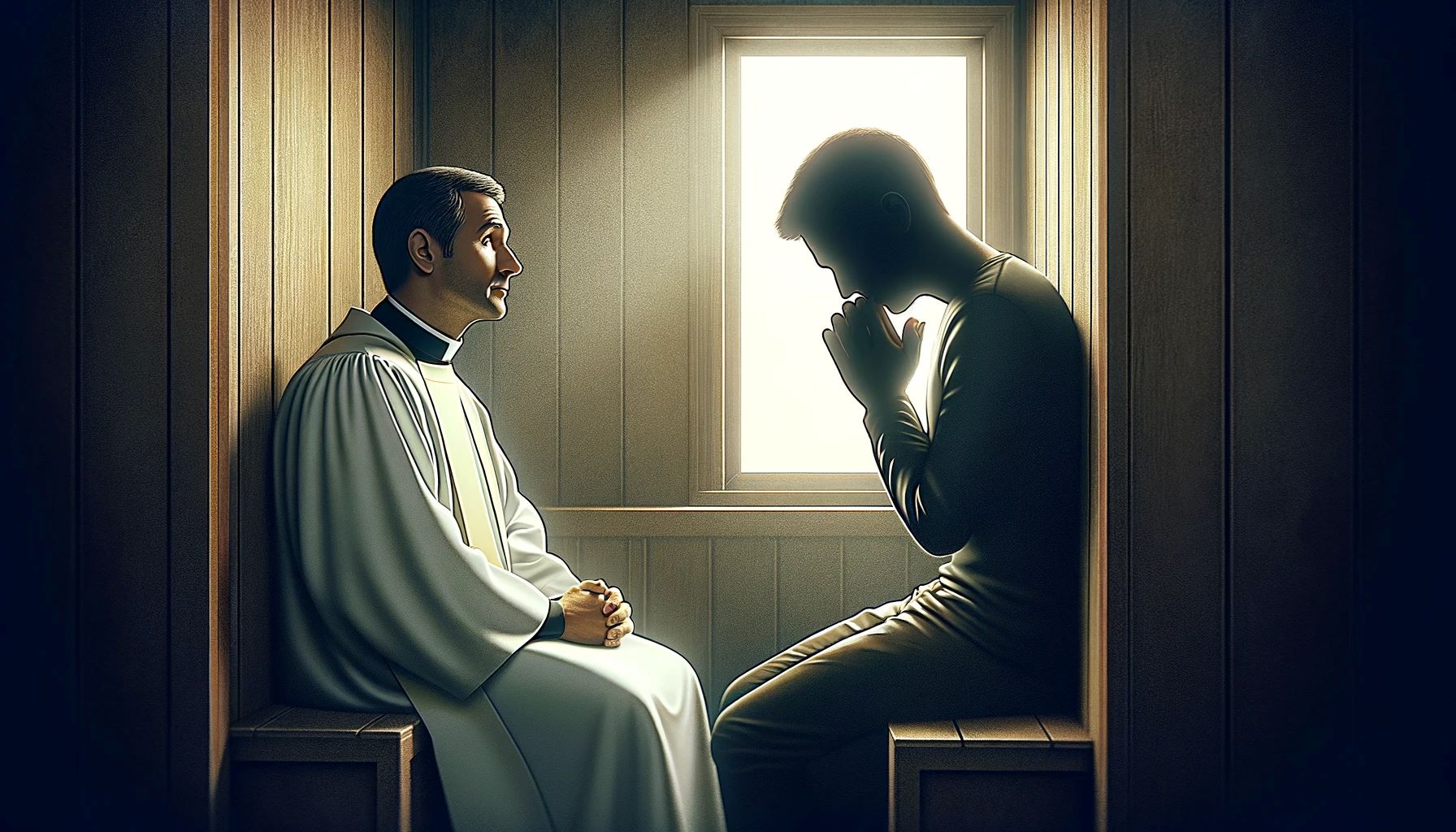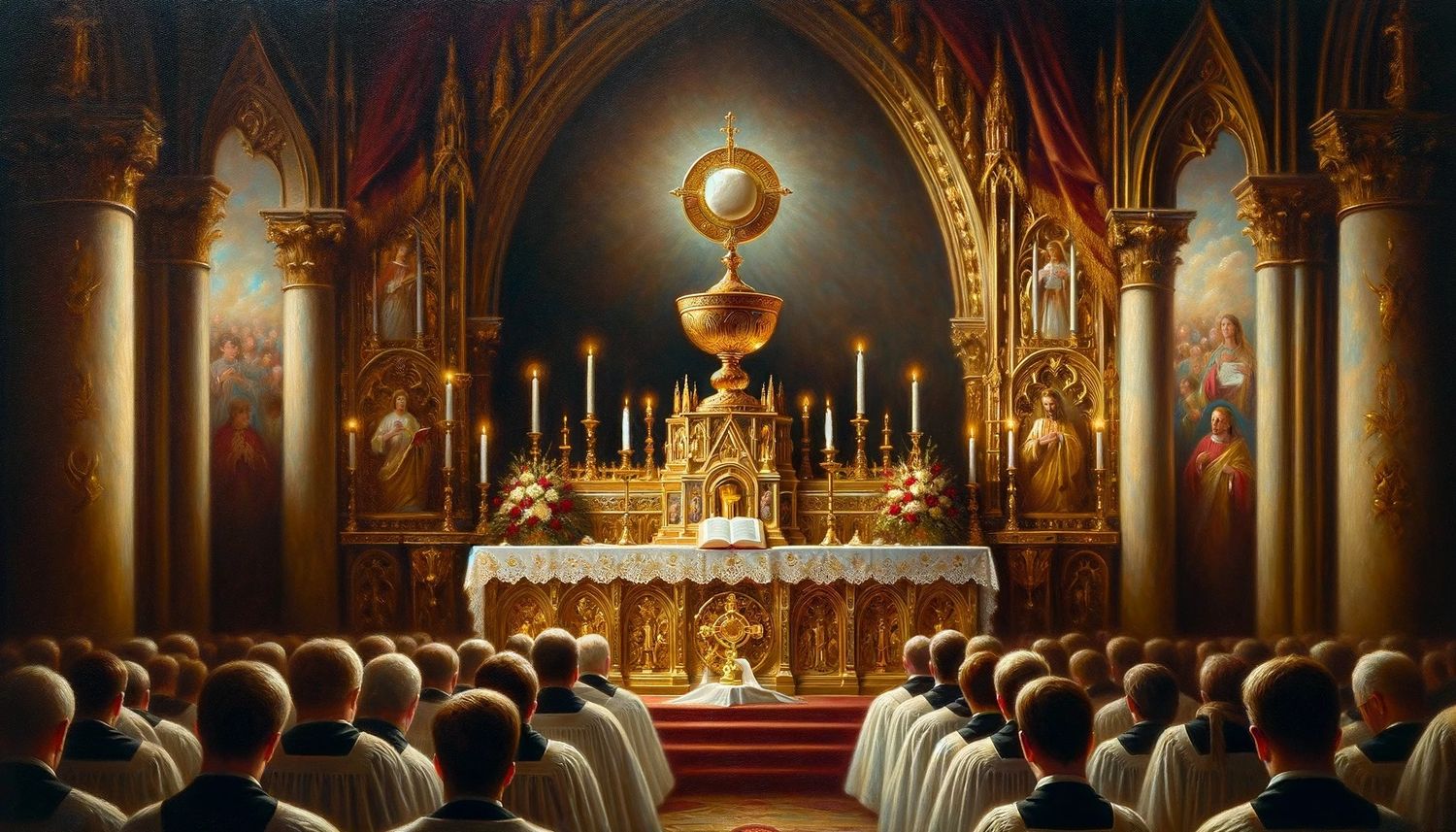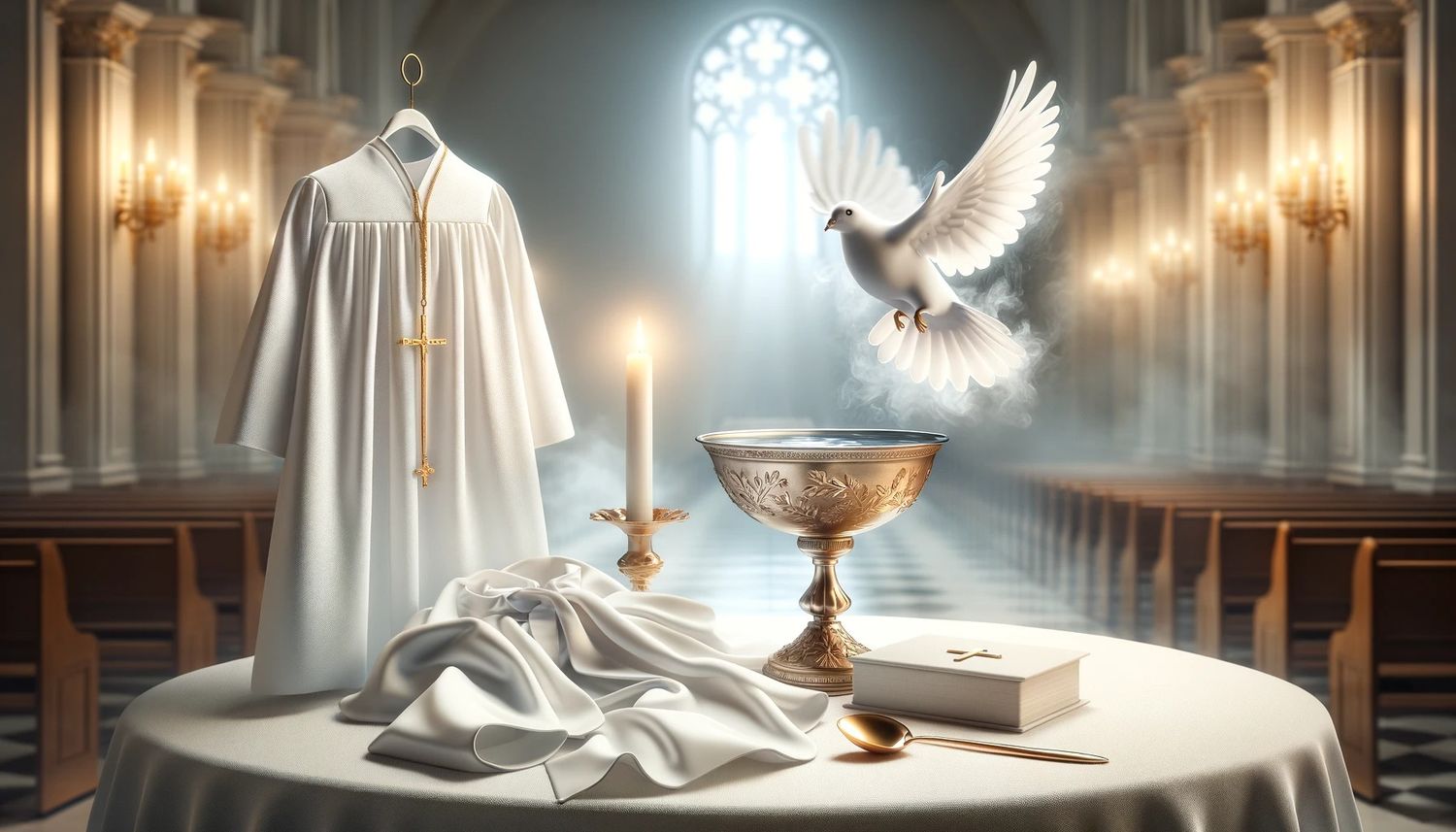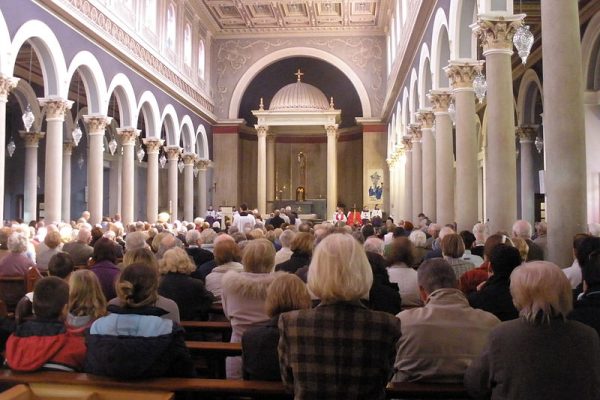Home>Theology and Spirituality>What Are The Sacraments Of Service Of Communion


Theology and Spirituality
What Are The Sacraments Of Service Of Communion
Published: February 25, 2024
Peter Smith, Editorial Director at Christian.net, combines deep insights into faith, politics, and culture to lead content creation that resonates widely. Awarded for his contributions to religious discourse, he previously headed a major organization for religious communicators, enhancing dialogue on faith's societal impacts.
Discover the significance of the Sacraments of Service of Communion in theology and spirituality. Explore their role in the Catholic faith and spiritual growth.
(Many of the links in this article redirect to a specific reviewed product. Your purchase of these products through affiliate links helps to generate commission for Christian.net, at no extra cost. Learn more)
Table of Contents
Introduction
The Sacraments of Service of Communion, also known as the Sacraments at the Service of Communion, are two of the seven sacraments recognized by the Catholic Church. These sacraments, Holy Orders and Matrimony, are distinct from the Sacraments of Initiation (Baptism, Confirmation, and Eucharist) and are focused on the vocation of service and communion within the Church and society.
The Sacraments of Service of Communion are deeply rooted in the theology of the Catholic Church, reflecting the belief in the sacred nature of marriage and the ordained priesthood. These sacraments are considered essential for the spiritual well-being and unity of the Church, as they establish and nurture the community of believers and provide a framework for the expression of faith in daily life.
In this article, we will explore the significance and theological underpinnings of the Sacraments of Service of Communion, delving into the specific rituals and responsibilities associated with each sacrament. By gaining a deeper understanding of these sacraments, we can appreciate their profound impact on the lives of individuals and the broader Catholic community. Let's embark on a journey to unravel the beauty and significance of the Sacraments of Service of Communion, discovering the rich tapestry of spiritual meaning woven into these sacred rites.
Read more: What Is The Sacrament Of Communion
Definition of Sacraments of Service of Communion
The Sacraments of Service of Communion, also known as the Sacraments at the Service of Communion, are a vital component of the Catholic Church's sacramental theology. These sacraments, Holy Orders and Matrimony, are distinct from the Sacraments of Initiation and are centered on the call to serve and foster communion within the Church and society.
The Sacrament of Holy Orders is conferred upon men who are called to serve as deacons, priests, or bishops within the Church. It is a sacrament of apostolic ministry, imparting the grace and authority to carry out the sacred duties of spiritual leadership, pastoral care, and the administration of the sacraments. Through the Sacrament of Holy Orders, individuals are ordained and commissioned to guide and nurture the faith community, embodying the teachings and mission of Jesus Christ.
In contrast, the Sacrament of Matrimony is a sacred covenant between a man and a woman, reflecting the union of Christ and the Church. This sacrament bestows upon the couple the grace to fulfill their roles as partners and parents, fostering love, unity, and the procreation and education of children. Matrimony is regarded as a vocation, calling spouses to support and sanctify each other as they journey together in faith and commitment.
The Sacraments of Service of Communion are deeply intertwined with the Church's understanding of vocation and the communal nature of the Christian life. They emphasize the call to selflessly serve others and contribute to the spiritual and social well-being of the community. Through these sacraments, individuals are empowered to live out their vocations with dedication, love, and a sense of shared responsibility, thereby enriching the fabric of the Church and society.
In essence, the Sacraments of Service of Communion embody the profound interconnectedness of faith, service, and community, underscoring the significance of self-giving love and the pursuit of unity within the context of the Catholic faith. These sacraments serve as pillars of support and guidance, nurturing individuals in their respective vocations and fostering a sense of communion and solidarity within the larger body of believers.
The Sacrament of Holy Orders
The Sacrament of Holy Orders is a sacred and venerable sacrament within the Catholic Church, encompassing the ordination of men into the ranks of deacons, priests, and bishops. This sacrament is deeply rooted in apostolic tradition and is considered essential for the continuation of the Church's ministerial priesthood, which traces its origins to the Twelve Apostles chosen by Jesus Christ.
The sacrament of Holy Orders confers upon individuals the grace and authority to fulfill various roles within the Church's hierarchical structure. Deacons, ordained as ministers of service, are called to serve the community through acts of charity, proclamation of the Gospel, and assistance in the liturgy. Priests, ordained to the presbyterate, are entrusted with shepherding the faithful, celebrating the sacraments, and proclaiming the Word of God. Bishops, ordained as successors to the apostles, bear the responsibility of leading and guiding the Church, preserving the apostolic teachings, and overseeing the administration of the sacraments.
The ordination rite of Holy Orders involves solemn prayers, the laying on of hands by the bishop, and the invocation of the Holy Spirit, signifying the conferral of spiritual authority and the indelible character of the priesthood. This sacramental act symbolizes the continuity of the apostolic ministry and the entrustment of sacred duties to the ordained individuals.
The Sacrament of Holy Orders holds profound significance within the Catholic faith, as it ensures the continuity of the ministerial priesthood and the perpetuation of the apostolic mission entrusted to the Church by Christ. Through this sacrament, individuals are called, set apart, and empowered to serve as spiritual leaders, shepherds, and stewards of the faith, embodying the teachings and example of Jesus Christ in their pastoral care and service to the community.
In essence, the Sacrament of Holy Orders stands as a testament to the enduring presence of Christ within the Church, as ordained ministers continue the sacred work of proclaiming the Gospel, administering the sacraments, and shepherding the faithful, thereby nurturing the spiritual life of the Church and fostering the communion of believers.
The Sacrament of Matrimony
The Sacrament of Matrimony, also known as marriage, holds a central position within the Catholic Church, embodying profound spiritual significance and divine grace. It is a sacred covenant between a man and a woman, reflecting the union of Christ and the Church. The sacrament of Matrimony is deeply rooted in the teachings of Jesus Christ, who elevated marriage to a sacred and indissoluble bond, affirming its role as a fundamental building block of human society.
In the Catholic tradition, the Sacrament of Matrimony is regarded as a vocation, a divine calling to a life of mutual love, fidelity, and selfless commitment. The marital union is sanctified by God's grace, empowering the couple to fulfill their roles as partners and parents, nurturing love, unity, and the procreation and education of children. Through this sacrament, the couple is endowed with the grace to support and sanctify each other, fostering a loving and harmonious relationship grounded in faith and mutual respect.
The sacramental rite of Matrimony involves the exchange of vows and rings, the nuptial blessing, and the participation of the faith community, symbolizing the couple's commitment to enter into a lifelong union characterized by love, fidelity, and openness to the gift of children. The Church, as a witness and guardian of the sacrament, bestows its blessing upon the couple, invoking God's grace and guidance as they embark on their journey together.
The Sacrament of Matrimony is a source of strength and grace for the couple, enabling them to navigate the joys and challenges of married life with faith, hope, and perseverance. It serves as a foundation for the family, providing a nurturing environment for the spiritual and moral upbringing of children and fostering a domestic church where faith is lived and passed on to future generations.
In essence, the Sacrament of Matrimony embodies the sacred union of love and self-giving, reflecting the divine love between Christ and the Church. It stands as a testament to the beauty and sanctity of marriage, offering couples the grace and support to build a life together rooted in faith, love, and mutual respect, thereby enriching the fabric of the Church and society.
The Role of Sacraments of Service in the Catholic Church
The Sacraments of Service of Communion, namely Holy Orders and Matrimony, play a pivotal role in the life of the Catholic Church, shaping its spiritual landscape and communal dynamics. These sacraments are deeply intertwined with the Church's understanding of vocation, service, and the nurturing of communion within the faith community.
The Sacrament of Holy Orders stands as a testament to the apostolic succession and the continuity of the ministerial priesthood, ensuring the pastoral care, spiritual guidance, and administration of the sacraments within the Church. Through the ordination of deacons, priests, and bishops, the sacrament of Holy Orders establishes a framework for the leadership and shepherding of the faithful, embodying the teachings and example of Jesus Christ in their pastoral ministry. It serves as a source of spiritual nourishment and guidance, fostering the unity and spiritual well-being of the Church.
Similarly, the Sacrament of Matrimony holds profound significance as it sanctifies the marital union, elevating it to a sacred vocation characterized by love, fidelity, and mutual support. The sacrament of Matrimony nurtures the family as a domestic church, providing a nurturing environment for the spiritual and moral upbringing of children and serving as a witness to the love between Christ and the Church. It plays a crucial role in fostering the values of faith, love, and unity within the family unit, thereby contributing to the spiritual vitality of the Church and society.
Furthermore, the Sacraments of Service of Communion underscore the communal nature of the Christian life, emphasizing the call to selflessly serve others and contribute to the spiritual and social well-being of the community. They serve as pillars of support and guidance, nurturing individuals in their respective vocations and fostering a sense of communion and solidarity within the larger body of believers.
In essence, the Sacraments of Service of Communion are integral to the fabric of the Catholic Church, shaping the spiritual identity of its members and providing a framework for the expression of faith in daily life. They embody the profound interconnectedness of faith, service, and community, underscoring the significance of self-giving love and the pursuit of unity within the context of the Catholic faith. Through these sacraments, individuals are empowered to live out their vocations with dedication, love, and a sense of shared responsibility, thereby enriching the spiritual vitality of the Church and contributing to the common good of society.
Read more: What Is A Communion Service
Conclusion
In conclusion, the Sacraments of Service of Communion, encompassing the Sacraments of Holy Orders and Matrimony, stand as pillars of spiritual significance within the Catholic Church. These sacraments embody the profound interconnectedness of faith, service, and community, underscoring the significance of self-giving love and the pursuit of unity within the context of the Catholic faith.
The Sacrament of Holy Orders ensures the continuity of the ministerial priesthood, empowering ordained ministers to shepherd the faithful, administer the sacraments, and embody the teachings and example of Jesus Christ in their pastoral ministry. This sacrament serves as a source of spiritual nourishment and guidance, fostering the unity and spiritual well-being of the Church.
Similarly, the Sacrament of Matrimony sanctifies the marital union, elevating it to a sacred vocation characterized by love, fidelity, and mutual support. It nurtures the family as a domestic church, providing a nurturing environment for the spiritual and moral upbringing of children and serving as a witness to the love between Christ and the Church. The sacrament of Matrimony plays a crucial role in fostering the values of faith, love, and unity within the family unit, thereby contributing to the spiritual vitality of the Church and society.
Overall, the Sacraments of Service of Communion underscore the communal nature of the Christian life, emphasizing the call to selflessly serve others and contribute to the spiritual and social well-being of the community. They serve as pillars of support and guidance, nurturing individuals in their respective vocations and fostering a sense of communion and solidarity within the larger body of believers.
By gaining a deeper understanding of these sacraments, we can appreciate their profound impact on the lives of individuals and the broader Catholic community. The Sacraments of Service of Communion provide a framework for the expression of faith in daily life, empowering individuals to live out their vocations with dedication, love, and a sense of shared responsibility, thereby enriching the spiritual vitality of the Church and contributing to the common good of society.
